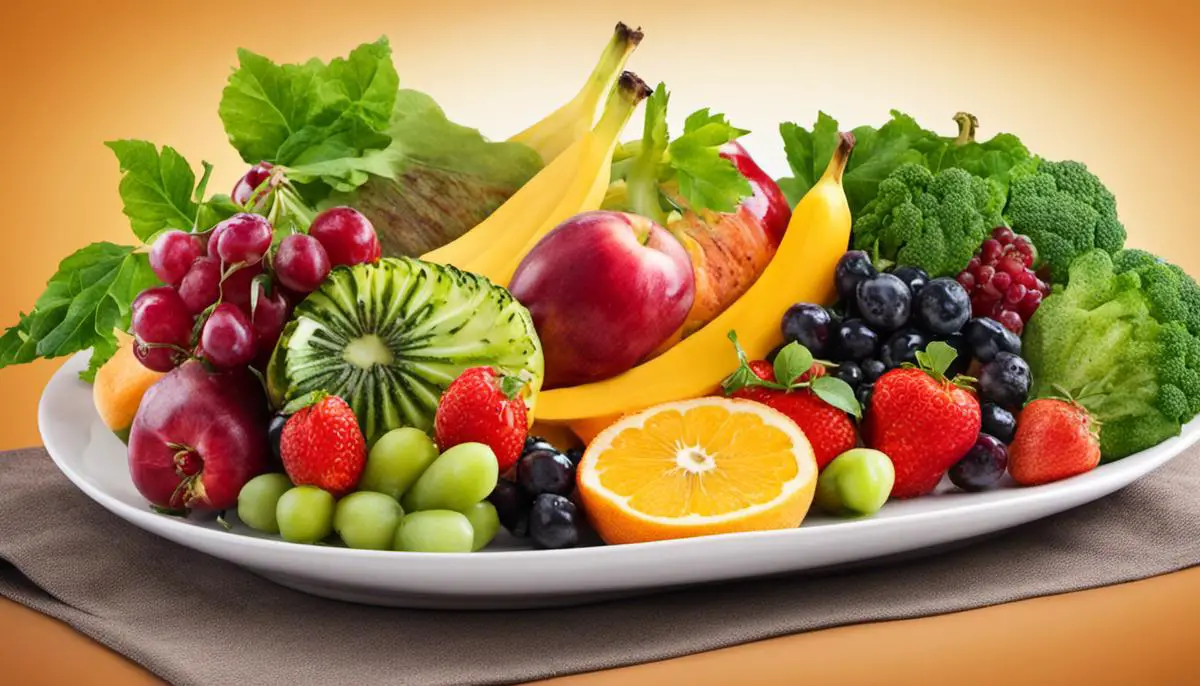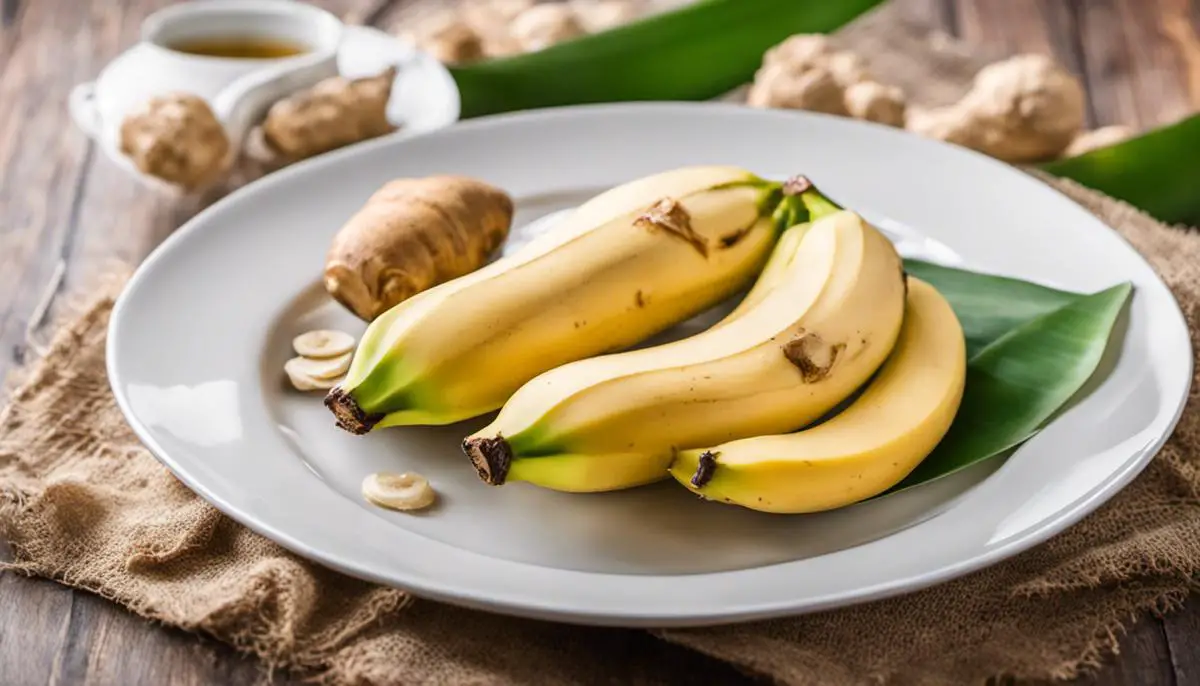Experiencing bloating can be a common but discomforting phenomenon that is often influenced by the type of food and drink we consume as well as our lifestyle habits. While not always a sign of a serious underlying condition, persistent bloating can drastically affect daily life and well-being. Understanding the causes, triggers, and strategies to manage bloating not only illuminates the multifaceted nature of this condition but also offers practical solutions to those affected. This guidance seeks to explore the complexity of bloating, offer insights into dietary triggers, reveal important strategies to alleviate symptoms, highlight bloating-friendly foods, and underline the role of exercise and lifestyle changes in reducing bloating.
Understanding Bloating
Understanding Bloating: An Overview
Bloating occurs when your belly feels swollen after eating. This condition can be highly uncomfortable and even painful. Usually, it is caused by excessive gas production or disturbances in the movement of the muscles of the digestive system. It can make your stomach look larger than normal and you may also feel full and tight. Bloating can sometimes be accompanied by other symptoms like burping, flatulence, pain, rumbling in the belly, and a feeling of being full or stuffed. Bloating can have a significant impact on the quality of your life by affecting your daily activities, your ability to work, your sleep, as well as your social and personal relationships.
Common Causes of Bloating
Several factors can trigger bloating, including food sensitivities, gut disorders such as irritable bowel syndrome (IBS), hormonal fluctuations, and certain lifestyle factors. Eating too fast, consuming large amounts, eating fatty foods, stress, and lack of physical exercise can all contribute to bloating. Also, certain health conditions like liver disease, kidney failure, heart failure, and certain types of cancer can also cause bloating.
Diet and Bloating
Diet plays a significant role in managing bloating. Certain foods are known to produce gas and trigger bloating. Some common culprits include beans, lentils, broccoli, cabbage, onions, sprouts, cauliflower, apples, pears, and carbonated drinks. Similarly, high-fat and high-sugar foods can delay stomach emptying, causing you to feel uncomfortably full. Another common dietary trigger for bloating is lactose, the sugar found in milk and dairy products. Some individuals cannot digest lactose, leading to bloating, gas, and other gastrointestinal symptoms. Moreover, certain types of artificial sweeteners can also induce bloating.
The Role of the Digestive System in Bloating
The digestive system’s role in bloating is critical. After you eat, your digestive system breaks down food in the stomach using stomach acids. Then, the food goes into the intestine, where bacteria further break it down to extract nutrients and produce gas as a by-product. This gas accumulates and expands your stomach, causing bloating. If your digestive system isn’t functioning correctly due to a disorder, it can cause extra gas production, slower transit times, or increased sensitivity to the amount of gas in your intestines—all of which can result in bloating.
Symptoms and Health Complications
Symptoms of bloating can vary but typically include a swollen or distended stomach, feeling uncomfortably full, excess wind (burping or flatulence), and needing to loosen your clothing. In some severe cases, bloating may be accompanied by other symptoms like loss of appetite, vomiting, weight loss, fever, and severe abdominal pain, which can be signs of serious health complications and would require medical attention. Occasionally, bloating could also be a symptom of serious conditions like liver disease, ovarian cancer, or stomach cancer.
Impact of Bloating on Everyday Life
Bloatedness isn’t merely an insignificant discomfort—it can severely affect your everyday life. Chronic bloating can impact your ability to carry out regular activities and lead to feelings of frustration or anxiety about your health. This can contribute to body image distress and lower self-esteem levels. Furthermore, constant bloating can interfere with your professional and social life, disturb your eating habits, and significantly alter your quality of life. Therefore, managing and controlling bloating is crucial for maintaining a healthy lifestyle.
Addressing Bloating Through Dietary Changes
For those grappling with bloating, specific alterations in diet may be helpful. Incorporating easy-to-digest, low-sugar, and high-fiber foods like whole grains, fruits, vegetables, lean proteins, and healthy fats is often recommended. It’s also crucial to stay well-hydrated, limit the consumption of artificial sweeteners, and eat small, regular meals rather than three large ones. Other helpful tips include slowing down while eating, chewing food thoroughly, and refraining from drinking liquids during meals. All these habits can greatly aid in reducing bloating. However, for persistent or severe bloating, consultation with a healthcare provider or dietitian to customize your diet can be an effective strategy.

Food Items that Trigger Bloating
Grasping the Concept of Bloating and Identifying Its Causes
Bloating is a widespread digestive issue, typically presenting as an uncomfortable sensation of feeling full or the perception of an swollen abdomen. Its causes can range from the production of gas, irregularities in the movement of muscles within the digestive system, to issues concerning the balance of gut bacteria.
Food Sources Contributing to Bloating
Various types of food components can lead to bloating, including certain types of carbohydrates and dairy products. These components may not be digested fully in the small intestine for some people, leading to gas formation when they reach the large intestine.
Carbohydrates
Certain types of carbohydrates named FODMAPs (Fermentable Oligosaccharides, Disaccharides, Monosaccharides, And Polyols) often contribute to bloating. Foods high in these substances include wheat, onions, garlic, broccoli, beans, mushrooms, apples, and pears. These can be difficult to break down and cause water to be pulled into the intestines, resulting in gas and bloating.
Dairy Products
For people with lactose intolerance, dairy products like milk, cheese, and ice cream can cause bloating, along with other digestive issues. This is due to a deficiency of the enzyme lactase, which is required to break down lactose, the sugar found in dairy products.
High-Sodium Foods
Foods high in sodium can also lead to bloating by causing water retention. Foods to watch out for include processed foods like deli meats, canned soups, and fast food.
Carbonated Beverages
Carbonated beverages including soda can cause gas to get trapped in the digestive system, which can lead to bloating.
Role of Meal Sizes and Eating Habits on Bloating
Aside from the ingredients of the food, the meal sizes and eating habits can also play a significant role in bloating. Larger meal sizes can lead to overeating, which can prolong digestion and cause bloating. Meanwhile, eating too quickly can lead to swallowing air, which can also cause bloating. Moreover, irregular meal patterns can disrupt the normal functioning of your gut and cause bloating.
Addressing Bloating through Dietary Adjustments
Bloating can often be prevented by identifying and limiting triggering foods in your diet. This might involve a decrease in the consumption of high FODMAP foods, paired with an increase in low FODMAP foods such as grapes, cucumbers, carrots, bananas, and oranges. If lactose serves as a factor, consider lactose-reduced or lactose-free substitutes.
Reducing sodium by shifting towards fresh, non-processed foods and ensuring frequent hydration can also be beneficial. Cutting down on the ingestion of carbonated beverages in favor of water, tea, or fruit-infused water is also advisable.
Eating habits matter too. Consuming smaller meals evenly spaced out during the day and slowing down your eating pace can help prevent bloating. Maintaining a food diary can aid in pinpointing individual trigger foods.
Being aware of potential triggers and creating a personalized diet plan can help manage and avoid bloating discomfort. For a tailored approach, consultation with a registered dietitian or a healthcare provider is suggested.

Strategies to Reduce Bloating Through Diet
Implementing a Balanced Diet to Alleviate Bloating
Planning a balanced diet is crucial in the battle against bloating. Consuming meals rich in lean proteins, whole grains, fruits, and vegetables is advantageous as these foods provide vitamins and minerals that support a healthy digestive system. Specifically, fiber-dense foods like whole grains and vegetables can lessen constipation and subsequently, bloating.
However, take note that overeating certain high-fiber foods can result in excess gas and increased bloating. Foods such as beans, lentils, broccoli, and onions are known gas producers. If these trigger bloating for you, try cutting down the serving size or slowly increasing their intake over time to allow your body to adjust.
Appropriate Portion Sizes
Eating large meals can cause bloating as there’s an extra load on the digestive system to breakdown and process the food. Eating smaller, more frequent meals can ease this process, reducing potential symptoms of bloating.
The idea is to eat until you are comfortably full but not stuffed. This might involve reducing the portion sizes, especially when eating foods that trigger bloating.
Regular Meals to Mitigate Bloating
A regular eating schedule could also be a key to combating a distended belly. Long intervals between meals can lead to excessive hunger, which results in overeating and bloating. Eating at consistent times every day can help enhance digestion and reduce bloating.
Drinking Plenty of Water
Staying hydrated is paramount for good digestive health and can help with bloating. Water aids the digestion process, as it softens up the food in your stomach and helps things move along your digestive tract more smoothly.
However, don’t drink a large amount of water (or any other beverage) at once as it can distend your stomach leading to bloat. Instead, sip a small amount throughout the day.
Adjusting Alcohol and Salt Intake
Excessive alcohol consumption can result in bloating, as it triggers the release of stomach acids that lead to indigestion and gas formation. Over time, alcohol can also cause dehydration, subsequently leading to constipation and exacerbated bloating. To help alleviate these issues, consider reducing your alcohol intake, or substituting alcoholic beverages with water or non-carbonated drinks. This can significantly aid in decreasing bloating.
In addition to altering alcohol consumption, it is also vital to limit your intake of salty foods and carbonated drinks. Doing this can prevent fluid retention, further minimizing bloating. Remember, everyone’s body is unique and thus, reacts differently to various foods and diets. Therefore, it’s important to be aware of your body’s responses and modify your diet based on those signals. For personalized guidance, don’t hesitate to consult a healthcare professional or a dietitian.

Bloating-friendly Foods and Recipes
Adding Ginger: An Effective Natural Remedy for Bloating
Renowned for its plethora of health benefits, ginger can serve as a powerful tool against bloating due to its anti-inflammatory and digestive properties. Specifically, a compound in ginger called gingerol plays a significant role in reducing inflammation and discomfort often associated with bloating. You can easily incorporate ginger into your meals and drinks for a tasty remedy to bloating. Try grating some into your favorite soup or stew, or perhaps steep it in hot water to create a calming ginger tea. This heartwarming beverage not only aids digestion but is also effective in reducing instances of bloating.
Bananas: Your Go-To Bloating Solution
Bananas are a rich source of potassium, a mineral that aids in managing fluid levels in your body, thus combating bloating induced by sodium intake. An easy and convenient snack, bananas can be added to your breakfast cereal or oatmeal, or blended in smoothies.
Yogurt: The Probiotic Powerhouse
Yogurt is packed with probiotics, which are good bacteria that populate your gut and aid in digestion, helping to reduce bloat. Ensure to select yogurts with live and active cultures to get the most probiotic benefits. Incorporate yogurt into your diet by eating it as a snack, using it as a base for your smoothies, or substituting it for sour cream or mayonnaise in various recipes.
Peppermint: A Refreshing Relief From Bloating
Peppermint has been long esteemed for its ability to soothe digestive issues, including bloating. The menthol oil in peppermint relaxes the muscles in the gastrointestinal tract, allowing gas to pass and thus reducing bloating and discomfort. Peppermint can be enjoyed as a herbal tea. You can also add fresh peppermint leaves to your meals for a refreshing flavor.
Whole Grains: A Wholesome way to De-Bloat
Whole grains are high in fiber, which aids in regular bowel movements and prevents constipation-related bloating. Remember, however, to increase your intake of fiber gradually and drink plenty of water to avoid uncomfortable gas and bloating. Whole grains such as oats, quinoa, and brown rice can be cooked and mixed with vegetables for a nutritious, fiber-rich meal.
Bloating-friendly Recipe: Banana-yogurt Smoothie
Here’s one simple recipe that uses two of the bloating-friendly foods discussed. You’ll need 1 banana, 1 cup of yogurt with live and active cultures, and a handful of ice. Blend all ingredients until smooth. This bloating-friendly smoothie is a perfect breakfast or snack, providing the benefits of bananas and yogurt at once.
Eating for health is an individual journey and can vary significantly from person to person, so it might take some trial and error to figure out what works best for you. It’s crucial to remember that proper hydration and a balanced diet form the foundation of healthy digestion. Let’s dive into how to anchor your nutrition on bloat-friendly foods.

The Role of Exercise and Lifestyle Changes in Bloating
Unraveling the Relationship Between Exercise and Digestive Health
Regular physical activity is a potent ally in your battle against bloating. Exercise helps move gas through your digestive system, reducing the chances of it causing discomfort. Adding routines like walking, running, cycling, or yoga to your schedule will engage the digestive muscles and facilitate bowel movements. This can relieve bloating, but remember, it’s just as critical to respect your body’s limits and not to push too hard.
Be mindful that strenuous workouts can sometimes trigger bloating due to rapid breathing and potentially swallowing too much air. If you experience increased bloating after high-intensity sessions, you might need to consider lower-intensity options.
How Stress Levels Affect Bloating
Stress is often an overlooked factor contributing to bloating. High levels of stress trigger your body’s “fight or flight” response which halts non-emergency bodily functions, like digestion, leading to a buildup of gas and bloating. Also, stress and anxiety can lead to overeating or choosing unhealthy foods, which can worsen bloating.
Techniques such as mindfulness, meditation, deep-breathing exercises, and yoga can help lower stress levels and thus, reduce bloating. Incorporating these methods into your lifestyle can improve your overall mental health and impact your physical wellbeing.
Importance of Sleep in Preventing Bloating
Good quality and adequate sleep play a vital role in maintaining digestive health. Irregular sleep patterns or lack of sleep can disturb the normal bodily functions, leading to various problems like indigestion and bloating. When you’re deprived of sleep, your body produces more of the stress hormone cortisol, which can lead to inflammation and bloating.
Establishing regular sleep patterns can help prevent bloating. This includes going to bed and waking up at the same time every day, ensuring a dark and quiet sleep environment, avoiding heavy meals close to bedtime, and curtailing the use of electronic devices before sleep.
The Role of Diet in Reducing Bloating
Dietary changes are one of the most effective ways to reduce bloating. Drinking plenty of water and staying hydrated can aid in digestion and prevent constipation. Foods rich in fiber can also help, although adding too much fiber too quickly can increase gas and bloating. Thus, it’s recommended to gradually increase your fiber intake.
Steer clear of foods that cause gas, such as beans, lentils, broccoli, onions, and carbonated drinks. Also, consider keeping a food diary to identify and avoid foods that trigger bloating. Regularly eating smaller meals can also keep bloating at bay as it doesn’t overwhelm the digestive system.
Digestive issues like bloating can also be related to food intolerances or sensitivities. If bloating persists even after dietary changes, it may be wise to consult a healthcare professional to rule out the possibility of other underlying conditions.

Bloating may be common, but it does not have to rule your life. The knowledge of how different types of foods and your lifestyle influence bloating provides a significant step towards more confident dietary choices and a healthier life. Remember, consuming bloating-friendly foods like ginger, bananas, yogurt, peppermint, and whole grains as part of a balanced diet can be exceptionally beneficial. Additionally, developing a regular exercise routine, maintaining adequate hydration, limiting alcohol, and keeping a healthy sleep schedule can also positively impact your well-being. Armed with the information from this guidance, you can begin to make more informed choices that work best for your body and support your journey towards a bloating-free life.
